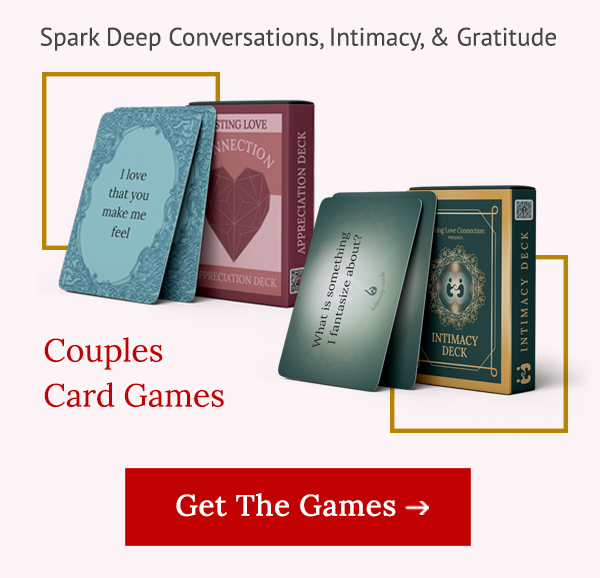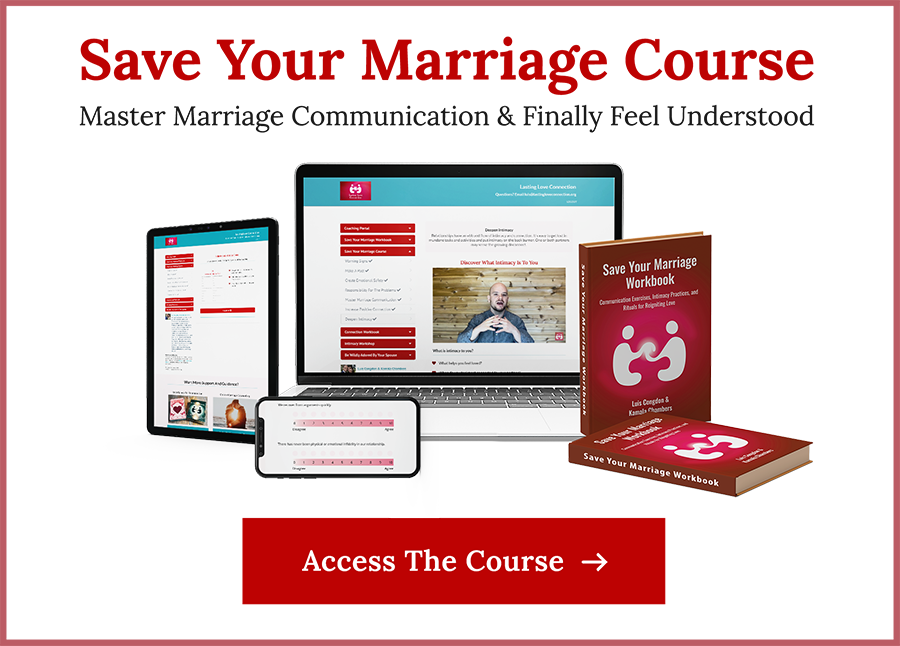If you’re disappointed when someone you love hurts you, you’re not alone.
Remember that everyone makes mistakes.
You can’t control what other people do, but you can control how you react. If you find yourself getting upset or angry, try to take a step back and calm down. Communicate effectively with the person who hurt you. Tell them how their actions made you feel and why they disappointed you.
If the person can realize and acknowledge what they did, they’ll likely be open to hearing what you say. They may feel bad, offer an apology, and work to repair and deal with the disappointment from their actions.
If they’re not sorry or if they continue to do certain things wrong that hurt you, it may be time to reassess.
No one deserves to be hurt, especially by someone they love. If you’re disappointed when someone you love hurts you, you may wonder what’s next.
Many resources are available to assist you, including books, this and our other articles, and online forums.
You can also reach out to an online marriage counselor. They can help you develop healthy coping mechanisms, work through your emotions, and deal with disappointment.
Table of Contents
Disappointed when someone you love hurts you?

If you’re looking for steps to repair the damage, the first step is to talk to your partner about it.
Express how you feel and give them a chance to apologize and explain their side of the story.
Next, try to forgive them.
This doesn’t mean forgetting what happened. Rather, it means letting go of bitterness or relationship resentment you may feel.
After that, it’s important to work on rebuilding trust.
This may involve sharing your feelings more openly, being more honest with each other, or spending more time together.
Finally, don’t forget to take care of yourself.
Repairing emotional damage can be a difficult and draining process.
Make sure to nurture yourself during this time by doing things that make you happy and spending time with people who make you feel good about yourself.
With these steps, you can begin the process of repairing the emotional damage in your relationship.
How to get over the negative feelings when someone hurts you?

Anytime someone hurts us, we feel pain. It is natural to want to hold onto that hurt and the anger and resentment.
But holding keeps us stuck in the past. If we want to move on and heal, we let go of feeling hurt.
One way to do that is to understand why the other person acted the way they did. What were they feeling at that moment?
What’s happened in their life that led them to act out?
Once we can see things from their perspective, it becomes easier to forgive. We can also choose to forgive without understanding why they acted as they did.
Maybe they were having a bad day or made a mistake. Whatever the reason, holding onto anger and resentment will only damage our own peace of mind.
So if you’re struggling to let go of feeling hurt, remember that forgiveness is a choice – and it’s a choice that will help you heal.
What should you do when someone you love hurts you?

When someone you love hurts you, it can be difficult to know how to respond. You may want to retaliate or withdraw to protect yourself from more pain.
Distance may be helpful for a time. However, emotionally withdrawing won’t bring you back to closeness.
Instead, it is important to understand what may have led to the hurtful behavior and address the issue directly with the person who hurt you.
This can be a difficult conversation, but it may help to remember that you are not alone. Many people have gone through similar experiences. In fact, the people we’re closest with can hurt us the most.
Ultimately, your goal should be to maintain your emotional health and window of tolerance and protect your relationships. By taking these steps, you can begin to heal the hurt and move forward positively.
Why is it that the person you love hurts you the most?

Though we may not like to admit it, the people we love often hurt us the most. And there’s a reason for that: we expect more from them than anybody else.
We expect them to understand us completely, to always be there for us, and to never make a mistake. But the reality is that nobody is perfect, not even the people we love the most.
They are human, just like you, and they will make mistakes.
What’s important is how they respond to those mistakes.
A loved one willing to listen to our hurt feelings, acknowledge their role in the situation and apologize sincerely is someone who truly cares about us.
Though it may not feel like it at the moment, their willingness to take responsibility for their actions shows respect and unconditional love.
So next time your loved one hurts you, remember that their actions are not a reflection of their love for you.
What do you do when someone hurts you and doesn’t care?

Being hurt by someone you care about can be one of the most difficult experiences. When someone we love and trust hurts us, it can create anger, betrayal, and deep sadness.
Healing often requires time and patience. Give yourself the space to grieve the loss of emotional safety in the relationship and to work through your feelings.
In addition, it is important to reach out for support from family and friends. Talking about your experience can be an important part of the healing process.
Ultimately, when someone hurts you and doesn’t care, focus on taking care of yourself. Give yourself time to heal and surround yourself with people who love and support you.
What should not be forgiven in a relationship?

While it’s important to forgive and move on from small offenses in a relationship, some things should never be forgiven.
One of the most obvious is when your partner intentionally causes physical harm.
This can include anything from hitting to sexual assault, which clearly shows that the relationship is unhealthy.
If you are worried your partner will physically harm you, get out of the situation as soon as possible.
Ask a family member for help, and contact the Domestic Violence Hotline. If you’ve been hurt physically by someone you love, seek professional advice on mending the physical and mental health damages.
Other unforgivable offenses can include stealing, lying, or cheating. Although, surviving infidelity, and other deal-breakers, is possible. These behaviors damage trust and can be difficult to rebuild.
If your partner has betrayed your trust and is unwilling to do the repair work, your sense of safety matters most.
While it’s never easy to forgive someone you love who has hurt you, sometimes it’s necessary for peace in your own mind.
If you’re unsure whether you should forgive or forget, it’s always best to seek professional help. A therapist or couples coach can provide guidance and support as you make this difficult decision.
Book a free consult to see if online relationship coaching can help you and your partner.
Can someone hurt you and still love you?

If you’re in an abusive situation, how can someone abuse you and still claim to love you? Abuse is about power, not love.
An abuser will use any means necessary to maintain that control, including physical violence, verbal threats, intimidation, and emotional manipulation.
They may also try to isolate their partner from friends and family or dictate their finances.
As a result, the victim can feel trapped, alone, and scared. Despite all this, trauma bonding can cause victims to still care for and want to be with their abuser.
Abuse isn’t just about physical violence; it’s also about the slow erosion of someone’s self-esteem and self-worth.
After years of being told they’re worthless and unlovable, victims can start believing it themselves. As a result, they may stay in the relationship out of fear or because they think they deserve the abuse.
If you’re in an abusive relationship, it’s important to remember that you are not responsible for your partner’s behavior.
No one deserves to be treated this way, no matter what. There is help available if you need it.
Please don’t hesitate to reach out.
How do you react when someone hurts you emotionally?

When someone hurts us emotionally, it can feel like a punch to the gut. We might feel shocked, disappointed, and even betrayed. It’s natural to want to protect ourselves from further pain, so we might pull away from the person who hurt us. We might also lash out in anger, trying to hurt them the way they hurt us.
However, hurting someone you love won’t fix the underlying pain.
If we can step back and take a deep breath, we might be able to see the situation more clearly. Maybe the person who hurt us didn’t mean to.
Or maybe they were going through their own pain and took it out on us. Whatever the reason, try to see that their lashing out probably isn’t about you. Instead, it’s about their unresolved pain.
If you’re wondering how to let a man know he disappointed you or how to tell a woman she hurt you, the best way is to express your feelings directly.
Talk about how their words or actions made you feel. Be honest and open about your feelings. Hopefully, they’ll be able to understand where you’re coming from and apologize for their behavior.
Holding onto anger and resentment will only hurt you in the end. Focus on what you can change: giving yourself what you need to recover.
What to say to someone who has hurt you deeply?
Knowing what to say can be difficult when someone you care about deeply hurts you. You might need to confront them and demand an explanation, or you might just want to withdraw and lick your wounds privately.
However, take time to process what has happened and allow yourself to feel whatever emotions come up.
Once you’ve done that, you can start to decide how you want to move forward.
If you decide to talk to the person who hurt you, share their actions’ impact on you and your requests for moving forward.
You can resolve conflict by expressing your concerns calmly and respectfully through ‘I statements.’
Here is a simple conflict resolution formula
- When you (the specific thing they did).
- I felt (state how it made you feel).
- I want to request (a specific request you need to repair).
- Is that something you think you can do?
Tell them exactly what they did that hurt you and why it was so painful. Then, give them a chance to share their side of the story.
Finally, try to reach a resolution that will work for both of you.
Offering forgiveness doesn’t mean forgetting what happened; it just means giving them another chance.
How do I stop feeling emotionally hurt?
When we experience emotional hurt, it can be difficult to move forward. We may feel stuck in the pain, reliving the experience repeatedly in our minds. But it is possible to heal from emotional hurt and grow stronger.
Here are a few tips for moving forward…
1. Acknowledge the hurt.
Denying that you’re in pain will only make it worse. Allow yourself to grieve and feel the full range of emotions with the hurt.
Acknowledging the hurt can seem simple, but it’s hard to do. When we’re hurt, we tend to bottle up our negative emotions and pretend everything is okay.
But the hurt doesn’t go away. It can fester inside us and come out in other ways – maybe we lash out at the people we love or withdraw from them altogether.
Acknowledging that we’re hurt is the first step to healing. It allows us to process our emotions and start to move on.
It’s also an act of self-compassion – something we all deserve. So next time you’re feeling the pain, try acknowledging it. You might be surprised at how much better you’ll feel once you’ve made space for your emotions.
2. Talk about it.
It can be helpful to talk to someone who will understand and who can offer support. Talking about the experience can help you process it and start moving on.
It can be difficult to discuss how we’re hurting, especially if we feel like the only ones going through it. We may worry that others will judge us or that they won’t understand.
However, talking about our hurt can help us to stop feeling emotional pain. By sharing our experiences with others, we can better understand them. We can also learn how to cope with our hurt healthily.
In addition, sharing our hurt can help us to feel more connected to others. We may find that we are not alone in our experiences and that others have gone through similar things.
Ultimately, sharing can help us to heal and move on from difficult situations.
3. Create new memories.
One way to stop reliving the hurt is to create new memories that will make you feel good.
If your person can make an effort to be your best friend, you can start to move past the betrayal. Make a point to laugh together, do things that bring a sense of happiness, and surround yourself with positive experiences.
One of the most significant things we can do to remove emotional pain from our lives is to create new memories.
Our memories are what define us, they are what make up our life stories.
The memories associated with the betrayal can be painful. However, if we decide to take the time to create new memories, we can start to write new stories for ourselves.

We can fill our lives with positive experiences and joyful moments. Over time, the pain associated with our old memories will start to fade as the new memories become stronger.
Healing doesn’t just happen; as you may realize, the actions you take together mends broken relationships.
So if you’re struggling to let go of the past, make a point to create new memories with your partner.
Try the Couples Card Games to repair and make new memories together.
Ask your person to show you how much you matter to them. Even a little thing like sending a daily loving text message can start the process of rebuilding your life together.
4. Forgive.

Learning to forgive can be incredibly difficult, especially when we’ve been hurt by someone we love.
We may feel like we can’t forgive them or that forgiveness is impossible.
But forgiveness is always possible, and it’s one of the most important things you can do for your own emotional well-being.
Forgiveness doesn’t mean condoning the wrong thing the person did – it just means letting go of the anger, resentment, and pain their actions caused you.
If you hold grudges, it will only hurt you in the long run. And life is too short for hurting.
It may be difficult to forgive at first, but it will get easier as the old wounds heal. As you let go of all that pain, you’ll start to feel better and lighter – like a heavy burden has been lifted from your shoulders.
When you forgive and accept, you set aside your disappointment and pain and realize this is someone you love.
If you’re struggling to forgive someone, that’s okay. We hold onto resentment as a way to protect ourselves. However, you can better protect yourself by trusting that people will be who they show themselves to be. Then, you can let go of the expectation that they’ll be different, and forgiveness becomes easier.
You can also start to forgive yourself. Although you’re not the main person at fault, forgiving yourself can help your sense of peace and mental health. Forgive yourself for whatever role you may have played in the hurtful experience.
Holding onto self-blame will only make it harder to recover. Instead, focus on accepting yourself and on moving forward.
5. Focus on the present.
We’ve all been there. We get hurt emotionally, and the pain doesn’t go away.
We replay the hurtful event repeatedly in our minds, reliving the pain and feeling like a victim.
Often, we start to believe that we deserve the pain because of something we did or didn’t do. If this sounds familiar, there’s good news.
Focusing on the present can help you to stop feeling the emotional pain of the past. When you’re caught in the cycle of reliving a hurtful event, it’s important to remember that it’s just a memory.
It’s not happening right now.
And even though it may feel real, you can let go of it.
Instead of wallowing in the past, focus on the little things that make you happy in the present moment. Maybe it’s taking a walk outside, spending time with a friend, or listening to your favorite song.
Whatever it is, intentionally focus on what makes you feel good in the here and now. As you focus on the gratitude of the moment more often, you’ll find that the emotional pain starts to fade away.
And little by little, you’ll begin to feel like yourself again.
The past cannot be changed, but the present is yours to create. Make choices that will promote healing and happiness in your life today.
6. Set boundaries
When someone you love disappoints you, you probably feel vulnerable. You may be in a difficult situation and worried your loved one’s actions will leave you hurting again.
Set boundaries for yourself and the relationship about what behavior you’re unwilling to accept.
Maybe you’re afraid to set boundaries because you don’t want them to feel disappointed.
But the truth is, when someone you love hurts you on purpose or unintentionally, your boundaries are essential to rebuilding respect and hope for the future.
Repairing the damage done
If someone you love has hurt you emotionally, it’s not easy to know how to repair the relationship. But there is hope.
You may feel like you need some time to heal or want to confront your partner about what happened.
Either way, it is crucial to communicate openly with your partner and express your feelings. If you’re unsure where to start, try asking your partner how they feel and why they think the hurtful incident occurred.
Listen carefully to their answer and try to see things from their perspective.
After disappointing someone you love, it can be difficult to know what to do. Your partner may feel stuck or uncertain about how to move forward. Be clear about your needs and boundaries.
Once you’ve both had a chance to share your thoughts, you can begin to work on rebuilding trust and repairing the relationship. If you’re unsure how to do this, you can bring in an online couples counselor to help. Getting support can help restore your hope, repair the hurts
Overcoming emotional hurt and rebuilding a strong and healthy future together is possible with time and effort.
If you’d like more support in repairing your relationship, consider joining up the Save Your Marriage Course.







0 Comments